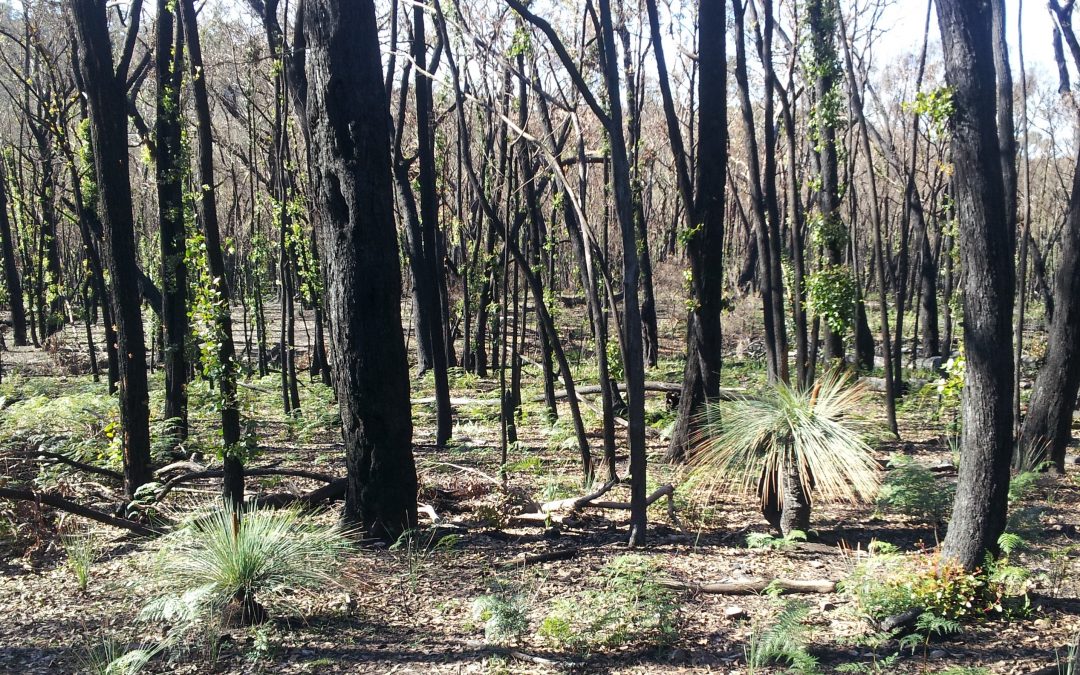Bushfires
As I write this, a large portion of eastern Victoria and eastern New South Wales is experiencing a bush-fire crisis. Watch and Act, and Evacuation orders have been in place for many regions. Fires also burn in other States and Territories. Australia is in trouble.
I am writing this for the Highly Sensitive People who have been feeling a sense of turmoil in relation to the fires. I’m not even near the fires and I’ve been feeling the worry and concern. I cannot imagine what it must be like for those who have been directly affected by this crisis.
Highly Sensitive People experience strong emotional and physiological reactions. If the experience of emotional reaction was determined by a dial, then for the Highly Sensitive their dial is permanently set on high. This means that we experience strong unwanted emotions and reactions to negative events. To balance this out, is the experience of strong positive emotions to such things as art, music, nature, wildlife, pets, a gesture of kindness, connecting with other people in deep conversation. The positive and the negative go hand-in-hand; you can’t have one without the other.
The fires are overwhelming and distressing for everyone. For the Highly Sensitive it leaves us feeling a deep sense of helplessness, distress and anxiety as well as guilt and even shame. This article explores some of the potential reasons behind these emotional responses and what we can do about it.
The suffering of humanity
To see so many people suffering, pleading for help, working tirelessly in a never-ending battle can create feelings of helplessness. Even while writing the feeling of inadequacy rises again. I know I am not alone in being unable to help those who need immediate assistance.
Nature and animals
Feeling a connection to nature can be part of being Highly Sensitive. The current images of forests burning and reports of hectares and animals lost are distressing. The trees and the animals have no way to save themselves. Domestic herds are literally trapped by the fences that were built to protect them – they cannot escape the flames. Personally, I have found images of burnt animals and birds to be distressing. My response to these images is one of heart-break. I can do nothing to protect them. I can do nothing to save them. I can only watch and do nothing – or not watch at all.
Social media and News
Social Media is flooded with images and reports of the fires. I don’t want to look at it, but I keep looking. I want to know what is going on. I want to see, but I don’t want to see. I check the weather, radar images and maps to see where the fires are.
When studying Cognitive Psychology, I learnt of the brain’s desire to understand. This is why we stare at the abnormal – not because we are rude, but because the brain is saying ‘this is not what I expected to see, I need to look at it a bit longer to comprehend what I am looking at.’ This is why we do the ‘double-take’, to make certain of what we just saw. Knowing this helps me to understand the desire to keep looking. Knowing this also helps me not to look, as I know that no amount of looking will help me comprehend the magnitude of this current crisis.
Feeling guilty for enjoying yourself
We know of ‘survivor guilt’, where the one who has survived a disaster, feels guilty for not sharing the fate that others suffered. Perhaps I can call this one ‘catastrophe guilt’. Knowing that, as I head to the shops, there are those who have lost everything. This kind of guilt can come from pre-programmed thinking which I call if a then b.
If A then B
Our brains learn algorithms. As we proceed through life we learn; or more specifically, your brain learns. It learns rules that are known to you and unknown to you, but will drive behaviour and reactions. You learn that if you touch something hot, you get burnt. What if you longed for a parent to play with you and they were too busy? Your brain might learn that you are not valued enough to spend time with.
Lessons become the algorithm of ‘if A then B’. If people don’t spend time with me then I am not valued. If I don’t spend time with people then they will think that I don’t value them. How about this rule: If I don’t worry, then I don’t care. If I don’t care or feel guilty, then I must be a horrible person. Our brain’s develop convoluted conclusions that influence our emotional responses and behaviour.
With bushfires raging around the country, I go shopping. Any feelings of discomfort potentially come from two directions. The direct knowledge that there is a crisis happening, but the other is more covert. My brain’s algorithms are possibly suggesting that I am a horrible person, or that I do not care, or that whatever I am doing – it will be the wrong thing. Knowing this does not silence my brain, but it does equip me with the ability to choose how I behave rather than tuning into my unhelpful thinking.
Six things you can do
I hope that this has helped you to understand why you might be responding to the current crisis with overwhelming feelings of anxiety, dread and worry. What follows are six things you can do: Financial Support, Limit Social Media and News, Unhook from unhelpful thinking, Donate to animal shelters, Watch out for opportunities to volunteer and Be kind to yourself.
- Financial Support
Donating money is one way to contribute to bush fire relief. A little bit of internet searching will provide the required information relating to this. Be aware of scammers, who have reportedly begun asking for donations.
- Limit Social Media and News
Limit your exposure to Social Media to twice a day for a period of 15 minutes (or something similar). The news too, just tune in for the major broadcasts.
- Unhook from unhelpful thinking
Knowing that we have brains that will naturally fixate on the negative helps us to be aware that our brain is actually simply doing what brains do. I call them ‘brain stories’. My brain story for the past week has been, ‘you should be doing more’ or ‘you shouldn’t be indulging yourself or having fun when there are people suffering’. I would like to highlight two things about brain stories: The first thing is that according to my brain story, I cannot win – It doesn’t matter what I do, it won’t be good enough or right enough. The second thing is how many times my brain says the word ‘should’. ‘Should’ is a shaming word and will hold me to rules and standards that are unachievable and are unhealthy in the long-term.
Knowing how my brain works, helps me to unhook from its unhelpful suggestions and frees me to make choices about my behaviour. I cannot stop it from saying what it does, but I can choose not to listen to it.
- Donate to animal shelters
Animal shelters are inundated with burnt and injured animals, both wild and domestic, following a bush fire crisis. Their resources are limited and are often stretched. Many shelters rely on donations for their ongoing services.
https://www.rspcavic.org/giving/donate
https://www.rspcansw.org.au/bushfire-appeal
- Watch out for opportunities to volunteer
We know of devastation and destruction when it happens but the clean-up often goes unnoticed by the media. Make yourself available to communities if you are able. If you are the one who needs help then please let others know.
- Be kind to yourself
It is necessary that you learn to be kind to yourself. The extra emotions that we carry takes its toll and we gain no prizes for being crushed by its weight. You are allowed to do nice things for yourself, kind things, restorative activities. Maintaining the balance of doing things for others, and doing things for yourself benefits your wellbeing.
For the firefighters and all other emergency workers – Thank you.
Feature image of regrowth 3 months after Grampians Fires of January 2014
About Gwen
Gwen is a school teacher, counsellor, author and presenter. Gwen’s counselling practice caters particularly for children, adolescents, teachers and parents, as well as generalised counselling. She works with individuals in relation to mental health and wellbeing. Gwen is the author of Bully Resilience: Changing the Game. See www.equipcc.com.au for more information.


Recent Comments